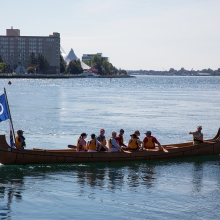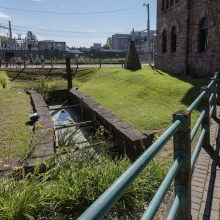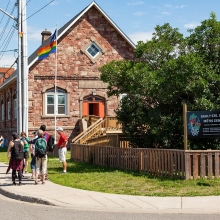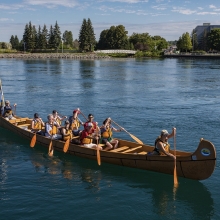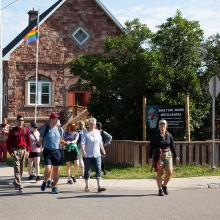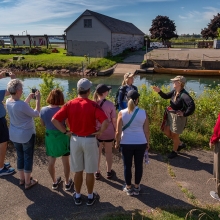Métis Tours
Discover the Métis History at Sault Ste Marie
LSWC has partnered up with the Historic Sault Ste Marie Métis Community to offer Métis-led cultural and ecology tours. The Walking, and Walking/Paddling Tours will begin at the new Sault Ste Marie Métis Centre (136 John Street). A Métis Interpretive guide will lead the Tours. Walking Tours connect historic and contemporary points of interest between the Centre and the St Marys River. For those on a Walking/Paddling Tour, participants will board our Gchi Jiimaan (Big Canoe) at Sault Ste Marie Canal National Historic Site to travel the St. Marys River learning about the Métis river lot life and fishing at the Rapids.
How does this help protect Lake Superior?
This program educates people on the importance of conservation and the value of eco-cultural tourism. The program is especially important because it is being done through a Métis perspective. Like all Indigenous Nations, the Métis culture has an intrinsic connection and responsibility to the health and well-being of the Lands and Waters. These cultural and ecological Métis tours will share the essential role that Indigenous People play in protecting the Lake Superior watershed. And how people everywhere, from every walk of life, can benefit from this knowledge to help protect this amazing planet we live on.

